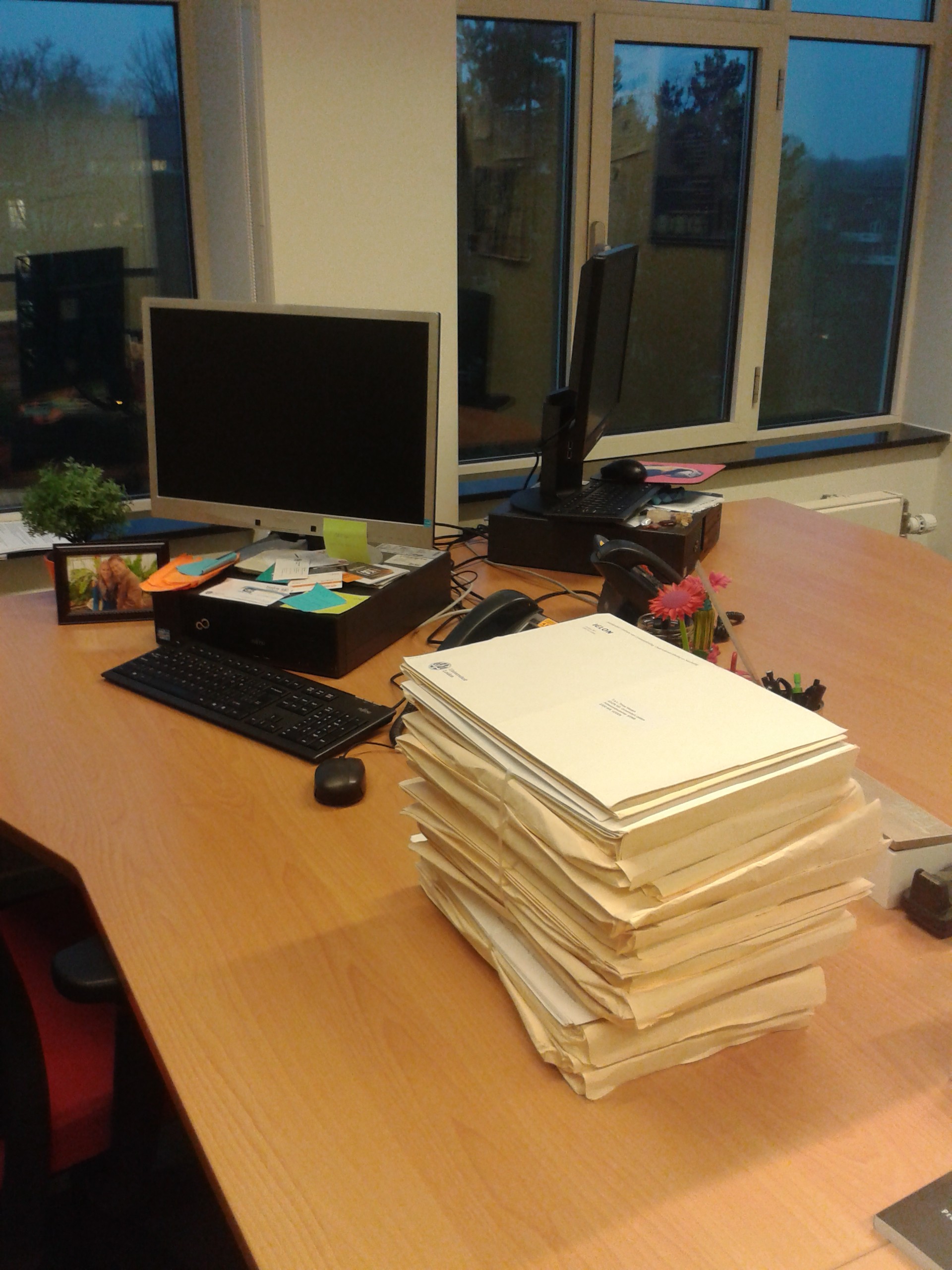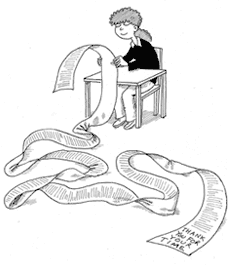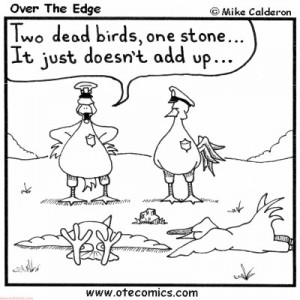“Quest: a journey towards a goal, serves as a plot device and (frequently) as a symbol… In literature, the objects of quests require great exertion on the part of the hero, and the overcoming of many obstacles”.
From last December until now, I have been anxiously awaiting for mail in my mailbox here at ICLON. By the time it was Christmas, I was singing “All I want for Christmas, is maiiiiil”! Really, nothing could make me a happier PhD student than receiving a bunk of mail like this on my desk every week:

Because, ladies and gentlemen, my first data have arrived! Finally tangible proof that my first year of work as a PhD student has paid off.
Constructing and distributing a questionnaire was somewhat more complicated than I thought. Here are some things you should think about:
- Constructing the questions. You cannot just ask whatever you fancy to ask, I discovered. You need to justify what you ask your participants, preferably supported by literature and/or by questionnaires already available covering your topic.
- Online or hardcopy’s by mail? That was a very relevant question, since I wanted to have about 2000 students filling in my questionnaire, an online survey would be so much easier for me. But it would also have such a small response rate… Also considering that my questionnaire took about 20 minutes to complete, I chose to send around my questionnaire in hardcopy. That way, students could fill it out in the lesson of the corresponding teacher, and be more likely to complete the survey.
- Recruit participants. In my case, I needed schools and teachers to commit to my research, ensuring their students and teachers would fill in my questionnaires. I already knew some teachers, but definitely not enough to cover my whole research population. So, I started asking around. With colleagues (do they have any contacts with schools that might be interested?), friends, acquaintances, institutions also interested in my research topic… And eventually, I even made a list of appropriate schools, looked up their telephone numbers and tried to call the specific teachers to explain them about my research and invite them to participate. Do not underestimate this step. It. Takes. Time.
- Logistics. After I printed and stapled over 2000 questionnaires (thank God for automatic staplers), they needed to get to the right persons in the right schools. And those right persons in the right schools should also be able to send the piles of paper back to the right person: me! I am so, so lucky to have gotten help from people in my department, and people from the post office (and occasionally my boyfriend, who helped in the stapling process). I had this whole administration of how many questionnaires should go to which school, how many for students (white coloured paper) and how many to teachers (orange coloured paper). I needed piles of envelopes with the right addresses, and also self-addressed envelopes in which the teachers could send the questionnaires back in the mail.
- Communication. It helps to be clear about the agreement you have with the corresponding teacher. Remind them in which classes the questionnaire has to be distributed. In general, remind them. And administer who returned how many questionnaires to you.
And then, everything needed to get back to me. I waited in such anxiety. At this moment, my response rates luckily seem very high, although one of my greatest fears also came true as some of the envelopes got lost in the mail. While still awaiting the very last envelopes to return, the scanning and analyses can begin…
What are your experiences when constructing and distributing a questionnaire? What were the obstacles you met, and do you have any tips and tricks for others? Please let me know in the comments below!

Image source: www.channel4learning.com



Recent Comments